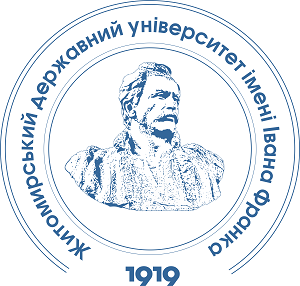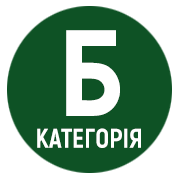PILOT STUDY OF UKRAINIAN HISTORICAL COLLECTIVE TRAUMA DURING RUSSIAN-UKRAINIAN WAR
DOI:
https://doi.org/10.32782/psy-2025-5-11Keywords:
collective trauma, historical trauma, ongoing war, pilot researchAbstract
The article examines the role of collective historical trauma in Ukrainian society within the context of the ongoing Russian war against Ukraine. Historical memory forms the foundation of national identity, and for Ukraine, this identity is deeply rooted in traumatic experiences, including the losses during the Soviet era, the Holodomor, deportations, and repressions. The article explores how these historical traumas may be reactivated by new distressing events, such as war, and resurface in societal consciousness. Collective trauma, arising from genocides, political repressions, and other tragedies, leaves a profound imprint on the collective memory of the nation. Traumatic memories may be repressed from the collective consciousness but can resurface in response to new stress-inducing situations. A pilot study showed that historical trauma remains unprocessed in Ukrainian society, as there is a high level of social pain and a desire for compensation for past injustices. Additionally, the study revealed variations in the perception of historical trauma across different regions of Ukraine, shaped by differing historical experiences and memories. The results obtained could serve as a basis for further research and the search for more effective methods for healing historical trauma.
References
Audergon A. Collective trauma: The nightmare of history. Psychotherapy and Politics International. 2004. Vol. 2 (1). P. 16–31.
Balke E. Trauma and conflict prevention: A critical assessment of the theoretical foundations and contribution of psychosocial projects in war-torn societies. London: Development Studies Institute, LSE, 2002.
Beukian S. Nationalism and collective trauma. The state of nationalism. Studies on National Movements. 2020. Vol. 5. P. 1–19. URL: https://stateofnationalism.eu/article/nationalism-and-collective-trauma/ (accessed: 02.09.2023).
Bezo B. The impact of intergenerational transmission of trauma from the Holodomor genocide of 1932–1933 in Ukraine. Master’s thesis, Carleton University. Ottawa, Canada, 2011.
Chang K. Living with vulnerability and resiliency: The psychological experience of collective trauma. Acta Psychopathologica. 2017. Vol. 3 (1). P. 53–57.
Crea G. Ricerca quantitative e processi educative: La supervisione in tecniche psicometriche. LAS-Roma, 2021.
Dźwigoł H. Pilot study in the research procedure. Scientific Quarterly Organization and Management. 2020. Vol. 2 (50). P. 1–13.
Field A. Discovering statistics using IBM SPSS statistics (4th ed.). Sage Publications, 2013.
Fülöp É., László J. Emotional processes in elaborating a historical trauma in the daily press: A longitudinal study of the Trianon Peace Treaty in the mirror of the Hungarian newspapers / R. Cabecinhas & L. Abadia (Eds.), Narratives and social memory: Theoretical and methodological approaches (pp. 46–60). Braga: University of Minho, 2013.
Hornostai P. Kolektyvna travma ta hrupova identychnistʹ. Psykholohichni perspektyvy. 2012. Vol. 2 (Spetsialʹnyi vypusk). P. 89–95 (in Ukrainian).
Hornostai P. Kolektyvna travma yak problema sotsial’noi psykholohii. Problemy politychnoi psykholohii. 2018. Vol. 7 (21). P. 55–68 (in Ukrainian).
Hornostai P. Ukraina v ėpitsentri kolektyvnoi travmy: Retrospektyva ta perspektyva. In M. Sliusarevs’koho ta S. Chunikhinoi (za red.), Materialy kruhloho stolu «Psykholohiia rosiis’ko-ukrains’koi viiny: vnutrishnii pohliad» (pp. 9–13). Natsional’na akademiia pedahohichnykh nauk Ukrainy, Instytut sotsial’noi ta politychnoi psykholohii, Asotsiatsiia politychnykh psykholohiv Ukrainy. Talkom, 2022. (in Ukrainian).
Hook K. The Holodomor and the Russian-Ukrainian conflict: History repeating? Center for Holocaust and Genocide Studies. The Society Pages, 2018. URL: https://thesocietypages.org/holocaust-genocide/the-holodomor-andthe-russian-ukrainian-conflict-history-repeating/ (accessed: 20.04.2024).
Koh E. The impact of trauma on peace processes. New England Journal of Public Policy. 2021. Vol. 33 (1). P. 1–15.
Lenherr M. Collective trauma and mystic dreams in Zabuzhko’s «The museum of abandoned secrets» / M. Leal, B. R. Middleton, & M. Moreno (a cura di), Intergenerational trauma and healing. Switzerland, 2019. Genealogy. Vol. 3 (4). Р. 15–25.
Losito G. Sociologia: Un’introduzione alla teoria e alla ricerca sociale. Carocci editore, 1998.
Marbach G. Le ricerche di mercato. Torino : UTET, 1996.
Masters J. Ukraine: Conflict at the crossroads of Europe and Russia. Council on Foreign Relations, 2023. URL: https://www.cfr.org/backgrounder/ukraine-conflict-crossroads-europe-and-russia (accessed: 20.11.2024).
Rinker J., & Lawler J. Trauma as a collective disease and root cause of protracted social conflict. Peace and Conflict: Journal of Peace Psychology, 2018. Vol. 24 (2). P. 150–164.
Schori-Eyal N., Halperin E., Bar-Tal D. Three layers of collective victimhood: effects of multileveled victimhood on intergroup conflicts in the Israeli–Arab context. Journal of Applied Social Psychology. 2014. Vol. 44 (12). P. 778–794.
Stankov G. Historical trauma: When a thunderstorm strikes, the echo (does not) fade away. Politics & Security. 2019. Vol. 3 (3). P. 63–103. (in Bulgarian).
Onufriv C. Psykholohichni naslidky istorychnoi amnezii pro holodomor 1932–1933 rr. v Ukraini. Visnyk L’vivs’koho universytetu. Seriia Zhurnalistyka, 2018. Vol. 43. P. 302–311 (in Ukrainian).
Villagram L., Blanco A., Olea J., Bilbao M. A proposal for evaluating psychosocial trauma. Psicothema. 2021. Vol. 33 (4). P. 631–638.






